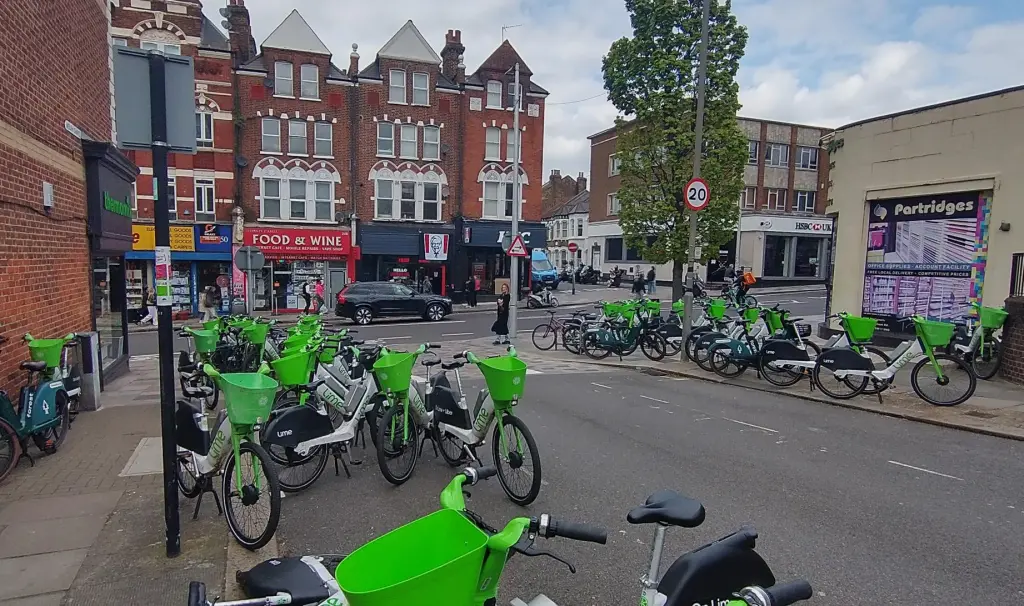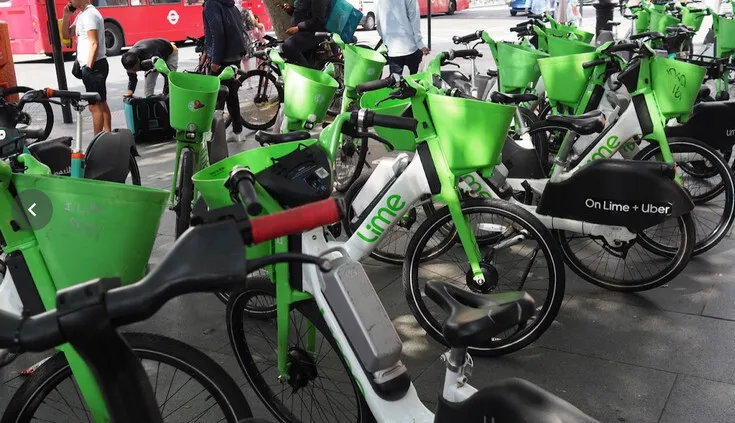1 year ago
Dockless e-bikes have become a staple of London life, but as their numbers have soared, so too have the issues.

Bikes left blocking pavements and public spaces have caused headaches for pedestrians, especially elderly and disabled Londoners. Now, Transport for London (TfL) is stepping in with a new enforcement policy to clean up the streets and keep the capital moving.
Since dockless bikes first appeared in London back in 2017, their popularity has grown rapidly. Lime and Forest, two of the biggest operators, now manage fleets of around 30,000 and 15,000 bikes respectively. While they’ve been praised for providing an eco-friendly and accessible way to travel, the downside is impossible to ignore. Bikes abandoned in inconvenient places are creating safety issues, turning walkways into obstacle courses.
Under the new policy, TfL will fine bike operators £50 for every bike found blocking pavements or public spaces on TfL-managed land, such as station forecourts or bus garages. The fine doubles to £100 if not paid within 14 days. TfL is also extending the rules to red routes, a key part of London’s road network that carries 30% of the city’s traffic.
To support the new regulations, TfL has pledged £1 million to fund the creation of 7,500 designated parking spaces for dockless bikes across the city. This initiative aims to make it easier for riders to park responsibly and for pedestrians to reclaim their walkways.

London isn’t the only city tackling dockless bike chaos. Places like Oxford, Manchester, and Swansea have already introduced measures to manage these schemes. In Westminster, docking stations were launched last year, and boroughs such as Islington and Hammersmith and Fulham have followed suit with similar initiatives.
TfL is now calling on the government to introduce legislation that would give local authorities more power to regulate dockless services, making enforcement easier and more consistent across the capital.
The new policy has been broadly welcomed by stakeholders. Caroline Seton, co-founder and chief legal officer at Forest, said:
“Sadly not everyone in the dockless bike industry has lived up to the standards we’ve set. It’s time for the government to take action and give TfL the powers needed to enforce high standards across the industry.”
Meanwhile, Clive Wood from Guide Dogs highlighted how these changes could positively impact the visually impaired:
“We have heard from many vision-impaired people in London that they have to navigate around inconsiderately parked rental e-scooters and e-bikes regularly. I hope operators will work with TfL to ensure the updated policy makes a difference.”
Dockless bikes are here to stay, and for good reason—they’re a green, convenient alternative to other forms of transport. But they come with responsibilities for both riders and operators. With TfL’s new measures, a bit of order could finally be restored to London’s streets.
So, next time you finish a ride, take an extra moment to park properly—it’s a small action that could make a big difference for everyone.